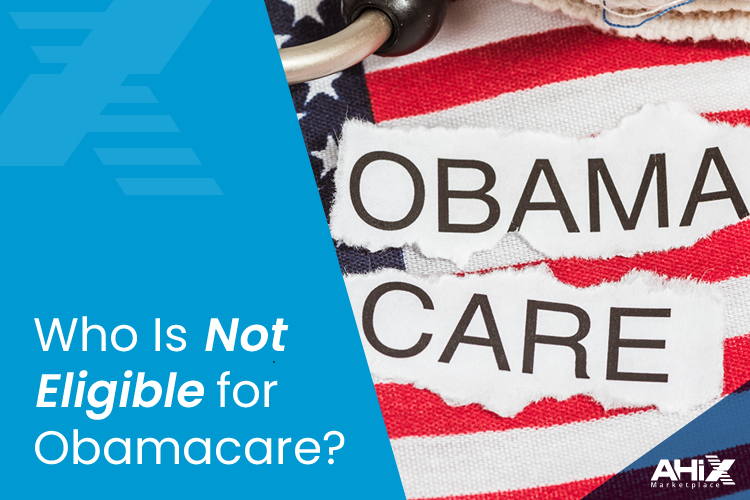In today’s dynamic healthcare landscape, navigating the realm of health insurance can be overwhelming. With various options available, understanding where to find the right coverage can make a significant difference. Enter health insurance marketplaces – a pivotal resource designed to simplify the process of securing health insurance plans tailored to individual needs.
Understanding Health Insurance Marketplaces
Health insurance marketplaces, also known as health insurance exchanges, are platforms where individuals, families, and small businesses can shop for, compare, and purchase health insurance plans. These marketplaces were established under the Affordable Care Act (ACA) in the United States to provide a centralized location for accessing quality health coverage.
How to Find Affordable Health Insurance Using a Private Health Insurance Marketplace
When it comes to finding affordable health insurance, utilizing a Private Medical insurance marketplaces can be a valuable strategy. Here’s how you can navigate these platforms to secure quality coverage at a reasonable cost:
1. Research Private Health Insurance Marketplaces
Start by researching the private health insurance marketplaces available in your region. These platforms may be operated by insurance companies, brokers, or third-party organizations. Look for marketplaces with a diverse selection of insurance plans from reputable insurers.
2. Compare Plan Options
Once you’ve identified a few Private Health Insurance Marketplace, take the time to compare plan options thoroughly. Consider factors such as coverage benefits, premiums, deductibles, copayments, and out-of-pocket maximums. Look for plans that offer the right balance of coverage and affordability for your needs.
3. Utilize Plan Comparison Tools
Many private Medical insurance marketplaces offer plan comparison tools to help users evaluate different options effectively. Take advantage of these tools to compare key features and costs side by side. Pay attention to details such as network providers, prescription drug coverage, and additional benefits.
4. Consider Your Healthcare Needs
When selecting a health insurance plan through a private marketplace, consider your specific healthcare needs and preferences. Are you looking for comprehensive coverage that includes access to a wide network of providers? Or do you prefer a more budget-friendly option with lower premiums and higher deductibles? Tailor your choice to align with your unique circumstances.
5. Explore Cost-Saving Opportunities
Private health insurance marketplaces may offer various cost-saving opportunities to help make coverage more affordable. Look for plans that qualify for government subsidies or tax credits, if applicable. Additionally, consider options such as health savings accounts (HSAs) or flexible spending accounts (FSAs) to save on out-of-pocket expenses.
6. Review Customer Reviews and Ratings
Before finalizing your decision, take the time to review customer feedback and ratings for the insurance plans and marketplace itself. This can provide valuable insights into the overall satisfaction level of existing policyholders and the quality of service provided by the marketplace.
7. Seek Assistance if Needed
If you’re unsure about which health insurance plan to choose or need assistance navigating the private marketplace, don’t hesitate to seek help from insurance agents or marketplace representatives. They can offer guidance and answer any questions you may have to ensure that you make an informed decision.
By following these steps, you can leverage private Medical insurance marketplaces to find affordable coverage that meets your healthcare needs effectively.
Private Exchanges vs Public Marketplaces
In the realm of health insurance, individuals and businesses have the option to obtain coverage through either private exchanges or public marketplaces. Here’s a brief comparison of the two:
Private Exchanges:
- Operated by insurance companies, brokers, or third-party organizations.
- Offer a curated selection of health insurance plans from various insurers.
- Provide flexibility in plan design and pricing options.
- Often cater to specific demographics or industries, such as retirees or small businesses.
- May offer additional services, such as wellness programs or telemedicine.
Public Marketplaces:
- Established under government regulations, such as the Affordable Care Act (ACA).
- Offer a wide range of health insurance plans, including those eligible for subsidies.
- Provide transparency and standardization in plan offerings.
- Facilitate eligibility determination for financial assistance programs.
- Open to individuals, families, and small businesses regardless of employment status.
While both private exchanges and public marketplaces offer access to health insurance coverage, the choice between the two ultimately depends on individual preferences, eligibility for subsidies, and specific healthcare needs. Whether you opt for a private exchange or a public marketplace, the key is to select a plan that provides comprehensive coverage at an affordable price.
Benefits of Health Insurance Marketplaces
Health insurance marketplaces offer several advantages to consumers:
1. Accessibility
Marketplaces provide a convenient and accessible way to explore health insurance options. Users can browse plans from multiple insurers in one place, simplifying the shopping experience.
2. Transparency
Through comprehensive plan comparison tools, marketplaces promote transparency by allowing users to understand the details of each insurance option. This transparency empowers consumers to make well-informed choices based on their specific needs.
3. Cost Savings
Many individuals and families may qualify for financial assistance through subsidies or tax credits when purchasing health insurance through the marketplace. These cost-saving opportunities make quality coverage more affordable and accessible to a broader population.
4. Variety of Options
Health insurance marketplaces offer a diverse range of insurance plans, catering to different preferences and budgets. Whether individuals seek comprehensive coverage or more affordable options, marketplaces ensure that there’s something for everyone.
Conclusion
In essence, Private Health Insurance Marketplace serve as valuable tools for individuals and families seeking quality healthcare coverage. By providing a centralized platform for exploring, comparing, and purchasing insurance plans, these marketplaces streamline the process of securing essential healthcare benefits. With accessibility, transparency, cost savings, and a variety of options, health insurance marketplaces empower consumers to make informed decisions about their healthcare needs. Whether you’re a first-time insurance shopper or looking to switch plans, consider leveraging the resources offered by Medical insurance marketplaces to find the coverage that best suits your requirements.
Frequently Asked Questions (FAQs) About Health Insurance Marketplaces
1. What is the Purpose of a Health Insurance Marketplace?
The primary purpose of a health insurance marketplace is to provide a centralized platform where individuals, families, and small businesses can shop for and compare health insurance plans. These marketplaces aim to make the process of securing health coverage more accessible, transparent, and cost-effective.
2. Are Health Insurance Marketplaces Only for Individuals Without Employer-sponsored Coverage?
No, health insurance marketplaces cater to a wide range of consumers, including those who may not have access to employer-sponsored coverage, self-employed individuals, small business owners, and even employees seeking alternative options to their employer’s offerings. Regardless of employment status, anyone can explore insurance plans through the marketplace.
3. How Do I Know if I’m Eligible for Financial Assistance Through the Marketplace?
Eligibility for financial assistance, such as subsidies or tax credits, through the marketplace is typically based on factors such as income level, household size, and citizenship status. When you apply for coverage through the marketplace, you’ll be asked to provide information about these factors, and the system will determine if you qualify for assistance.
4. Can I Purchase Health Insurance Outside of the Marketplace?
Yes, you can purchase health insurance outside of the marketplace directly from insurance companies or through brokers. However, shopping for insurance through the marketplace offers several advantages, including access to subsidies, comprehensive plan comparison tools, and a streamlined enrollment process.
5. Are All Health Insurance Plans Available Through the Marketplace?
While Health insurance exchanges offer a wide selection of plans from various insurers, not all insurance options may be available through the marketplace. Some insurers may choose not to participate in the marketplace, so it’s essential to explore all available options, both on and off the marketplace, to find the best coverage for your needs.
6. Can I Change My Health Insurance Plan After Enrolling Through the Marketplace?
In most cases, you can change your health insurance plan during the open enrollment period, which typically occurs once a year. Additionally, certain qualifying life events, such as getting married, having a baby, or losing other health coverage, may qualify you for a special enrollment period, allowing you to make changes to your plan outside of the regular open enrollment period.
7. How Do I Report Changes to My Income or Household Status to the Marketplace?
If your income or household status changes after enrolling in a health insurance plan through the marketplace, it’s essential to report these changes promptly. You can usually update your information online through your marketplace account or by contacting the marketplace directly. Reporting changes ensures that you receive the appropriate financial assistance and coverage based on your current circumstances.



